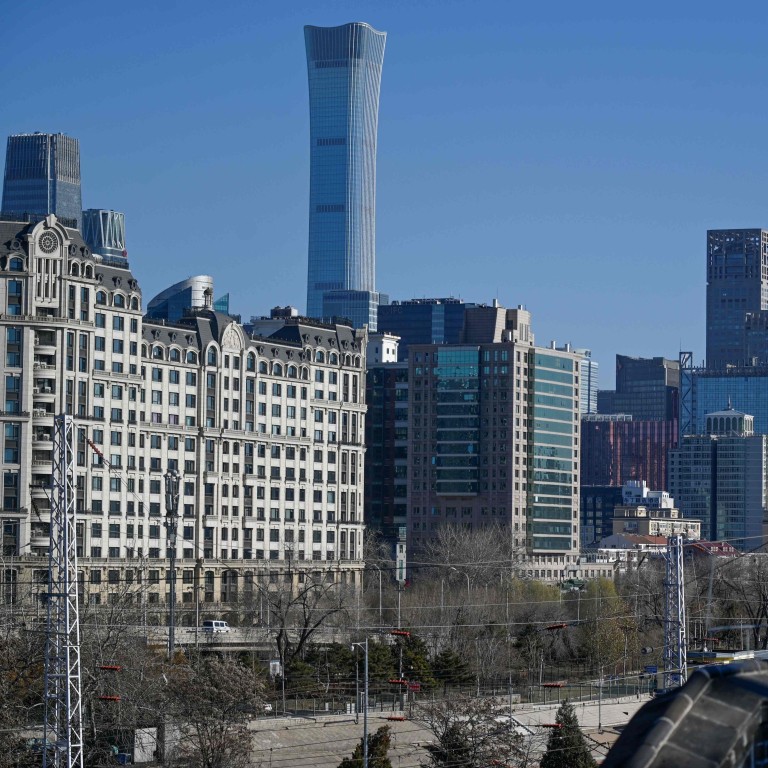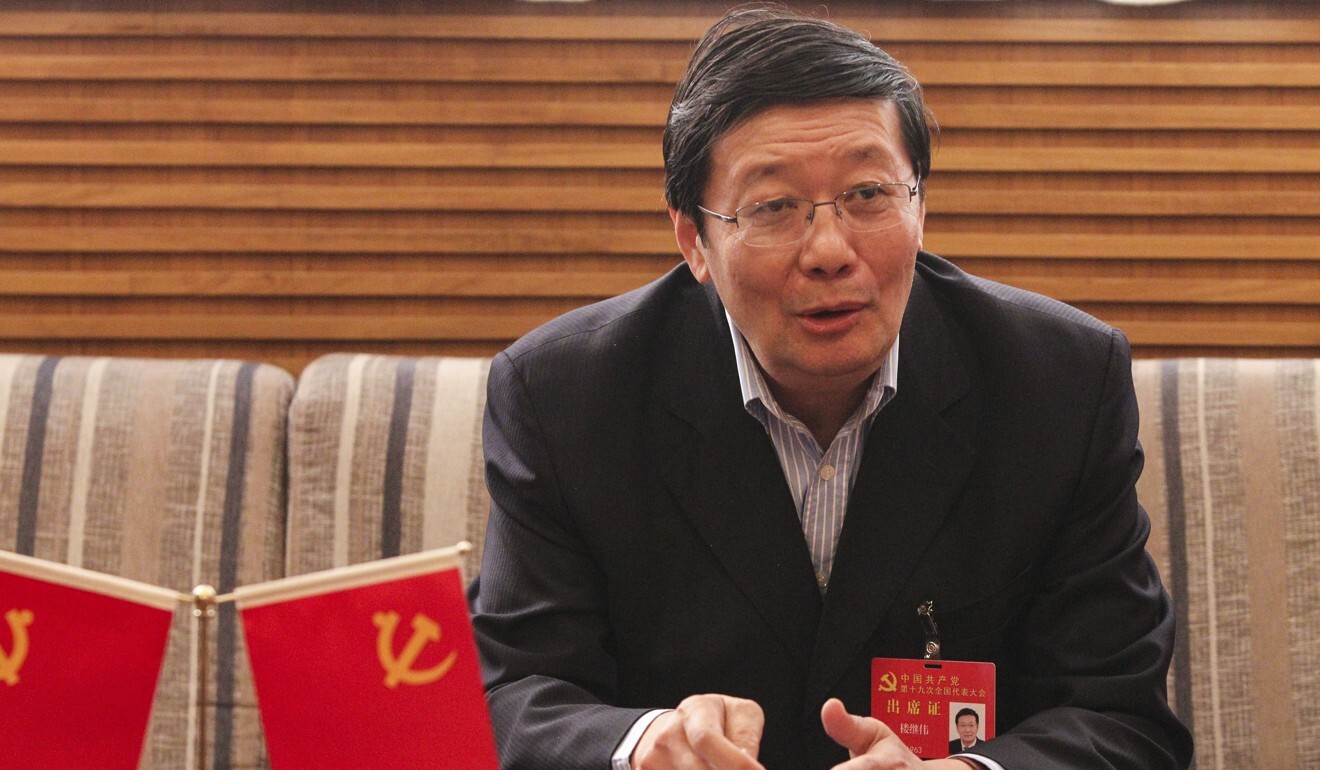
Former Chinese finance minister Lou Jiwei attacks regulators for ‘failure’ to act over risk
- Lou tells forum that central bank had not acted to tackle problems and warns mounting debt threatens the economy
- Collapse of Baoshang Bank and recent bond defaults cited as examples of poor oversight
China’s former finance minister Lou Jiwei has criticised the country’s financial regulators, saying they had ignored systemic risks.
In a speech made at the China Wealth Management 50 Forum in Shenzhen on Sunday, Lou highlighted a number of regulatory failures in the supervision of banks and bond markets and warned the country’s mounting debt threatened the economy.
“According to the current institutional arrangements, the People’s Bank of China is responsible for prudent supervision, but it obviously failed to take preventive measures before and after – for example, the reports on the bankruptcy of Baoshang Bank, which was rescued by 170 billion yuan [US$26 billion] from the deposit insurance fund,” Lou said, according to a transcript published on the news portal Sina.com.
China’s home prices stubbornly defy ‘grey rhino’ bank risk warnings
“Baoshang Bank has long had serious problems with key issues such as governance structure, asset quality, capital adequacy ratio, etc. [The bank had been] ignoring it and the risk just broke out.”
Lou said he opposed using public funds, such as the state-backed deposit insurance fund, to aid failing banks without devising a clear exit plan because such a measure may widen the fiscal deficit. He also warned this creates moral hazard as there is no supervision from the National People’s Congress and the public.
In January, Shandong-based Hengfeng bank, which had been undergoing restructuring since 2017, received 100 billion yuan of strategic investment through a share sale to state and foreign investors.
It is not clear how much state money invested in these banks will be recovered.
Lou also warned against rapidly growing public debt this year as a result of fiscal and credit expansion to tackle the impact from the coronavirus pandemic, taking China‘s overall debt to GDP ratio to more than 260 per cent.
Lou has been calling for an orderly exit from the stimulus and a return to deleveraging to reduce financial risks and asset bubbles.
“The macro leverage ratio should be stabilised and gradually decrease,” Lou said. ”The investigation and cleaning-up of high-risk institutions and the disorder of financial infrastructure must be continued.”
Lou, a vocal critic of government economic policy who is currently the chairman of the foreign affairs committee of the Chinese People’s Political Consultative Conference National Committee, said reforms in the bond market have fallen behind and recent defaults by state firms are a result of inconsistencies caused by the involvement of multiple regulators.

“Since the beginning of this year, bond defaults have occurred frequently, especially defaults of large state-owned enterprises, which have affected the credibility of state-owned enterprises and governments in the relevant regions.
“The first problem is that the market is segmented and issuance and supervision are not unified. The review of issuance includes the China Securities Regulatory Commission, the People’s Bank and the National Development and Reform Commission.”
“In addition, most of the interbank market bonds are held by banks in large quantities. Commercial banks underwrite and hold [bonds], and market liquidity is poor. Once the debt defaults, commercial banks suffer.
“There are still many problems in the bond market, and the basic condition is to have an unification of issuance standards, transaction circulation, and regulatory mechanisms,” Lou said.
China warned of a ‘flood of defaults’ as local government debt set to mature
He added that regulators need to standardise regulations between the interbank bond market and the exchanged traded securities market.
Lou went on to suggest that China could restrict the number of banks a single fintech platform can partner with, to prevent any platform from gaining too much market share and becoming “too big to fail”.
“The recent meeting and suspension of listing on a certain data financial platform are actually to prevent systemic risks before and during the event. This is the key point.
China moves to bring US$12.9 trillion shadow banking sector out of the dark
“If systemic risks have broken out and the government has to rescue them, taxpayers may lose money,” Lou said
He also suggested that China could copy the US model by setting up an equivalent of the Financial Stability Oversight Council to identify and monitor risk.
He said the structure of the council, headed by the Treasury Secretary, was more appropriate for handling the task because the Treasury is responsible for safeguarding taxpayers’ money.
“Our country lacks a mechanism to analyse risks in multiple fields and resolve them before and during the event,” Lou said.

